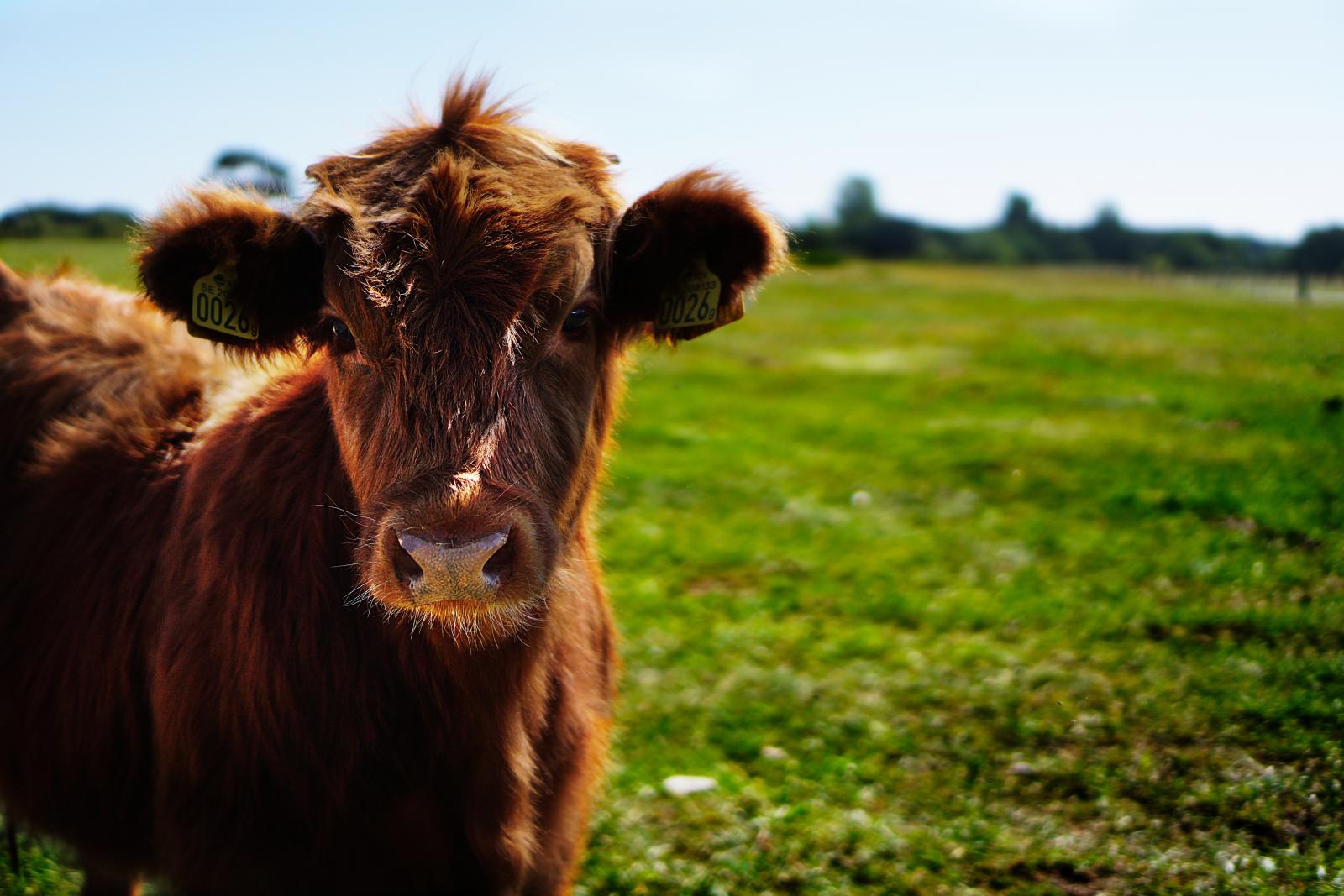 Pixabay
Pixabay
Buying meat and dairy that is reared in line with your ethics can seem nearly impossible. With all the different food labelling certifications out there, it’s easy to get confused. We’ve all seen labels depicting sheep contentedly roaming in the sunshine, or goats cheerfully getting milked by a benevolent farmer, but reality doesn’t always match the picture; modern farms can be exploitative and abusive to animals. When you start to learn about the uncomfortable truths behind meat and dairy farming it’s not surprising that many people choose to give them up entirely. And some people believe that eating animal products at all, no matter how well the animals are treated, is unethical, full-stop. But for the majority of the population who continue to eat meat and dairy, it’s important to understand the truth behind the products they’re buying. So, if like me, you’re not prepared to give up meat or dairy, but you’re keen to buy the most ethically-produced animal products possible, this guide is for you.
What’s in a Name?
Currently in the UK, there is no standardised system for labelling meat and dairy, which can make for a confusing time at the supermarket. Dr Julia Wrathall from the RSPCA notes, “There are no laws in place [in the UK] requiring information on products describing how animals are farmed.” This means that two bottles of milk stocked alongside one another could both have pictures of happily grazing cows on their labels but come from totally different farming styles. Added into this mix are misleading (and essentially meaningless) phrases like “all-natural” or “family farmed.” This all complicates the shopping process and causes people to buy food produced in ways that might not align with their values.
Getting Labelled
Ultimately, the best way to know if you’re buying safe, healthy, and ethical food is to visit the farms you’re purchasing from. This allows you to meet the people and animals who are feeding you and shortens the links in our lengthy and complex food chain. It is the best way to ensure you are buying food that you know to be safe, nutritious, and ethical. However, many Londoners might find this a tricky undertaking - which is why I’ve done some research to create a roadmap to help you navigate the supermarket aisles and shop in line with your ethics.
Cracking the Code
There are certain words you will see again and again on your food packaging, and while some of them seem intuitive, most of us aren’t sure exactly what they mean. When it comes to meat and dairy, these labels are the ones you need to understand:
Free-range: the go-to label for people who want to eat eggs from uncaged chickens. Be discerning though: this label covers a variety of scenarios. Ideally you are getting free-range eggs from chickens who have constant access to large outdoor areas. But it under this label it can also mean eggs from chickens who spend most of their time inside and have to compete with other chickens to access a tiny caged outdoor area. And, even if these chickens have space to roam, this label doesn’t cover practices like routine antibiotic use, beak trimming, or overcrowded conditions. If you want to be sure you’re buying the best, look for additional labels like Organic, or ask your retailer about the farm.
Pasture or grass-fed: is pretty much what it sounds like: cattle or sheep fed by grazing on pasture, as opposed to being fed indoors. Pasture-fed animals are preferable for a variety of reasons: they are generally less fatty than indoor-reared as they get exercise whilst grazing and the pastures are much more biodiverse when animals are grazing on them, due to natural fertilisation and soil agitation.
Outdoor bred: is a term used to describe pigs that start their lives with access to outdoor space, then are brought indoors for fattening after they have been weaned. Like free-range, this can cover a wide variety of situations, and this label doesn’t specify standards for the indoor or outdoor conditions, so look for this term in conjunction with certification schemes outlined below or ask your butcher for more information.
Outdoor reared: is a term used to describe pigs who spend at least half their life outdoors. Again, this can cover a wide variety of situations, and this label doesn’t specify standards for the indoor or outdoor conditions. Look for this term in conjunction with certification schemes outlined below or ask your butcher for more information.
Certification Schemes
It is important to note that becoming certified as RSPCA, Organic, et cetera, is a pricey process. The financial responsibility for certification lies with the farmers, which means many smaller farmers simply cannot afford it, even if their practices meet or exceed these standards.
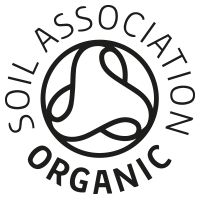 Soil Association Organic: Most people know that organic labels mean their food is produced without the use of unneccesary chemicals like pesticides, but what they might not realize is organic systems also include strict animal welfare guidelines. Currently this is theonly certified system that explicitly limits farm antibiotic use and requires farmers to use other methods to prevent and treat disease, with antibiotics available as a last resort for sick animals. Instead they draw up health plans for their animals to demonstrate how their food, exercise, and environment will prevent disease and contribute to their overall well-being - including their mental health. Animal mutilations like tail docking, beak trimming, and dehorning are strictly prohibited and all are stunned before slaughter, to minimise pain and stress at the end of the animal’s life.. Herbivores and chickens are given permanent access to pasture, so they can live normal lives where they exhibit their natural behaviours, like dustbathing or grazing. The Soil Association has specific space guidelines so animals are not overcrowded and pastures are not depleted from overgrazing, which means both the animals and the farmland flourish.
Soil Association Organic: Most people know that organic labels mean their food is produced without the use of unneccesary chemicals like pesticides, but what they might not realize is organic systems also include strict animal welfare guidelines. Currently this is theonly certified system that explicitly limits farm antibiotic use and requires farmers to use other methods to prevent and treat disease, with antibiotics available as a last resort for sick animals. Instead they draw up health plans for their animals to demonstrate how their food, exercise, and environment will prevent disease and contribute to their overall well-being - including their mental health. Animal mutilations like tail docking, beak trimming, and dehorning are strictly prohibited and all are stunned before slaughter, to minimise pain and stress at the end of the animal’s life.. Herbivores and chickens are given permanent access to pasture, so they can live normal lives where they exhibit their natural behaviours, like dustbathing or grazing. The Soil Association has specific space guidelines so animals are not overcrowded and pastures are not depleted from overgrazing, which means both the animals and the farmland flourish.
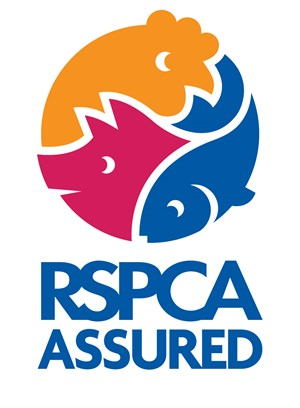 RSPCA Assured: as this system is outlined by the RSPCA, it is primarily concerned with animal welfare. Keep your eyes peeled for this certification if you want to be sure you’re supporting farmers that ensure their animals live as comfortably as possible. This scheme has very specific standards for animals’ space and bedding: for example, dairy cows must have clean, dry bedding where all animals have room to lie down, stand up, turn around, and groom themselves without bumping into other animals or walls. (In case you’re wondering, this translates to approx 5.5 square metres for an animal of 140-160 kg.)
RSPCA Assured: as this system is outlined by the RSPCA, it is primarily concerned with animal welfare. Keep your eyes peeled for this certification if you want to be sure you’re supporting farmers that ensure their animals live as comfortably as possible. This scheme has very specific standards for animals’ space and bedding: for example, dairy cows must have clean, dry bedding where all animals have room to lie down, stand up, turn around, and groom themselves without bumping into other animals or walls. (In case you’re wondering, this translates to approx 5.5 square metres for an animal of 140-160 kg.)
Like Organic, the RSPCA Assured scheme also has stunning practices to make the slaughter process as painless as possible for the animal; for beef cattle, this means a stunning system that renders the animal completely unconscious until the point of death.
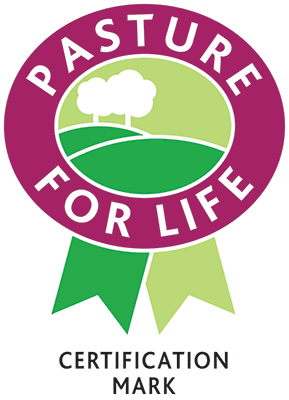 Pasture for Life: this scheme encompasses the regulations of Organic and RSPCA Assured schemes plus some additional guidelines of its own, making it the most thorough of those listed. Pasture for Life requires that animals be fed a natural diet that they graze themselves; any system where animals are fed harvested grain cannot be Pasture for Life certified. This means that crops fit for human consumption, like soy and corn, are not being fed to animals who would never naturally eat them (and often struggle to digest them anyway). Pasture for Life also requires that farmers monitor signs of stress among the animals (like lesions or loss of feathers), and address these issues by improving the animal’s environment, and therefore their mental health.
Pasture for Life: this scheme encompasses the regulations of Organic and RSPCA Assured schemes plus some additional guidelines of its own, making it the most thorough of those listed. Pasture for Life requires that animals be fed a natural diet that they graze themselves; any system where animals are fed harvested grain cannot be Pasture for Life certified. This means that crops fit for human consumption, like soy and corn, are not being fed to animals who would never naturally eat them (and often struggle to digest them anyway). Pasture for Life also requires that farmers monitor signs of stress among the animals (like lesions or loss of feathers), and address these issues by improving the animal’s environment, and therefore their mental health.
Finally, farmers must be able to demonstrate that the number of animals in the pasture will not deplete soil health by overgrazing or excessive fertilisation. as such, this scheme is appealing to both the animal-lovers and those who are concerned about the impact of intensive farming practices on our land.
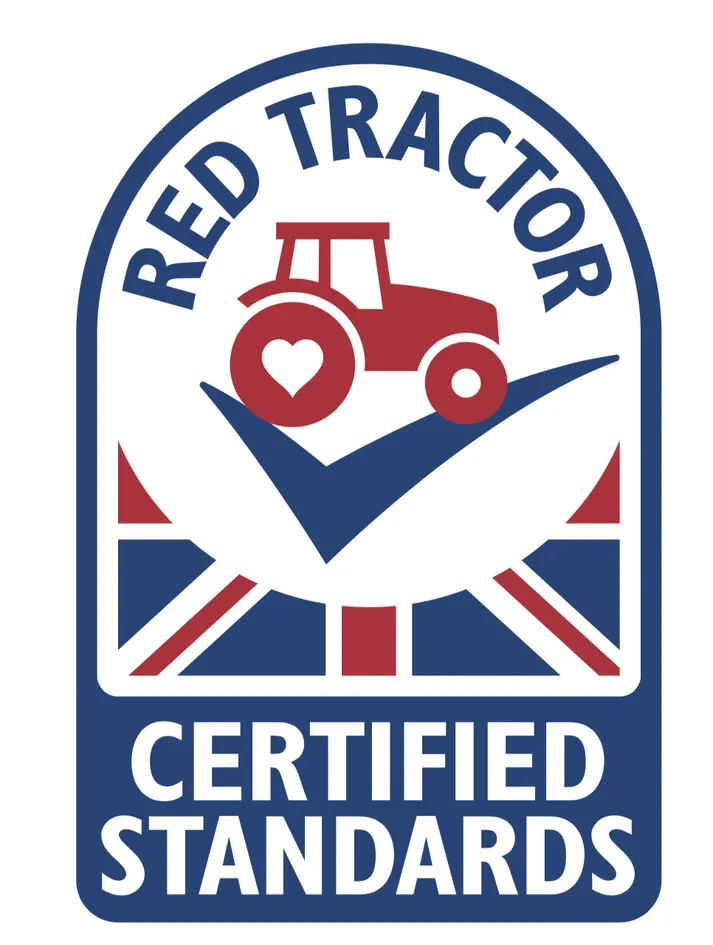 Red Tractor: This certification is likely the one you’ve seen the most but unfortunately it doesn’t go far in terms of animal welfare standards. Animals are guaranteed standards slightly above the minimum legal requirements, such as less crowded conditions and freedom from castration, but it does not go beyond this to ensure that animals are treated well.
Red Tractor: This certification is likely the one you’ve seen the most but unfortunately it doesn’t go far in terms of animal welfare standards. Animals are guaranteed standards slightly above the minimum legal requirements, such as less crowded conditions and freedom from castration, but it does not go beyond this to ensure that animals are treated well.
What Red Tractor really guarantees is that the food has been produced in Britain and meets the minimum standards for health, safety, and hygiene - in other words, you could argue it is more focused on the human eating the food than the welfare of the animals.
This scheme is by no means an ideal standard for ethical shoppers so look for it alongside other schemes outlined above, or skip it.
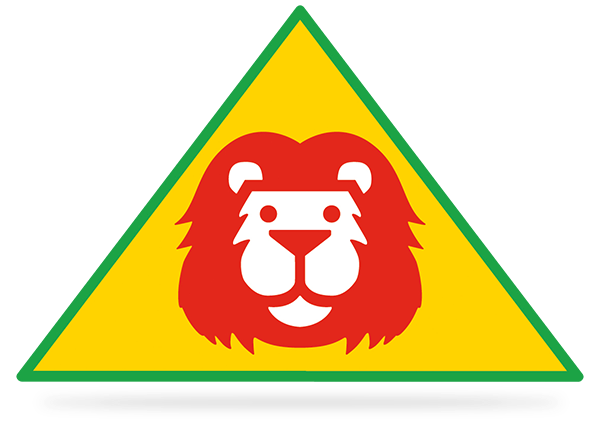 The Lion Mark: is a system used for labelling eggs that is unrelated to animal welfare. Lion Marked eggs are produced in Britain and meet national requirements for food safety and hygiene.
The Lion Mark: is a system used for labelling eggs that is unrelated to animal welfare. Lion Marked eggs are produced in Britain and meet national requirements for food safety and hygiene.
Lion Mark eggs may come from caged hens so look for the added label of ‘free-range’ on Lion Marked eggs.
Happy shopping
We hope this guide helps you feel confident navigating the supermarket aisles knowing you’re supporting farmers who put animal welfare first. If you think the UK should have a standardised food labelling system, consider signing the “Honest Labelling Campaign” from Compassion for World Farming. Also check out Annie's Around Town: Meat and Dairy for some great producers operating throughout Covid-19 and beyond.
London Food Link: London Food Link brings together community food enterprises and projects that are working to make good food accessible to everyone in London to help create a healthy, sustainable and ethical food system for all.
Sustain
The Green House
244-254 Cambridge Heath Road
London E2 9DA
020 3559 6777
sustain@sustainweb.org
Sustain advocates food and agriculture policies and practices that enhance the health and welfare of people and animals, improve the working and living environment, promote equity and enrich society and culture.
© Sustain 2024
Registered charity (no. 1018643)
Data privacy & cookies